#Martha Kuech
Photo
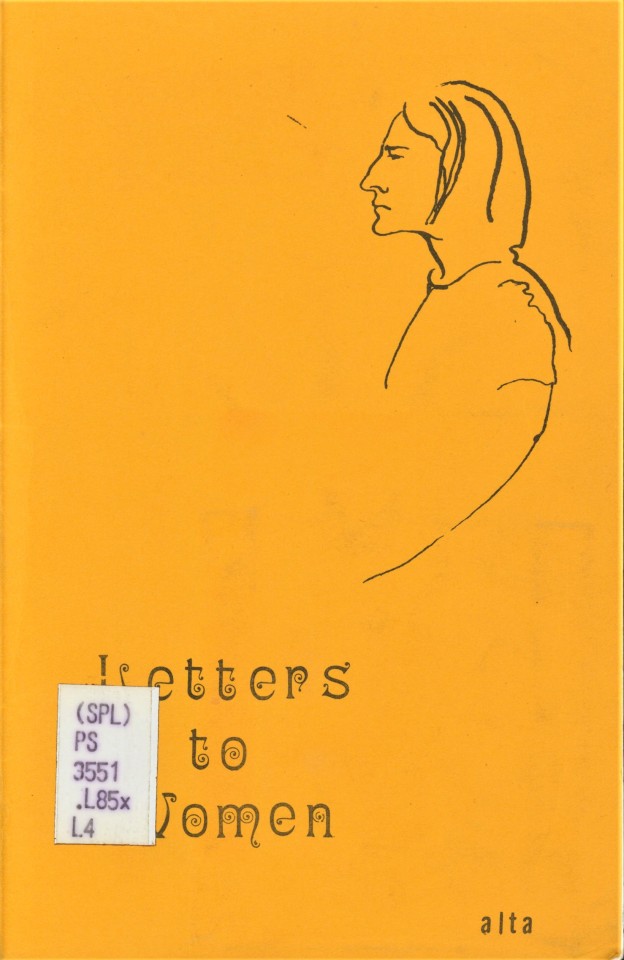
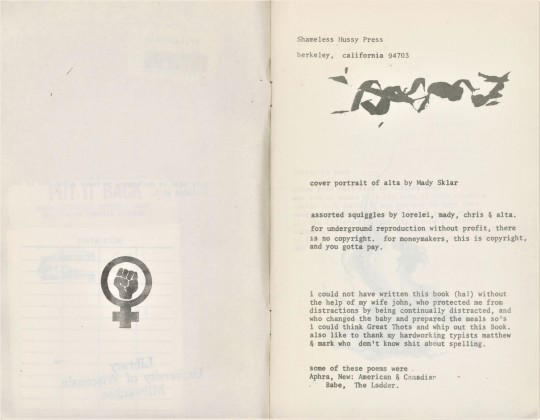
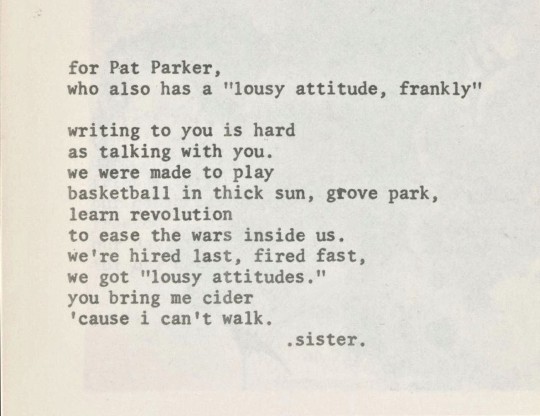
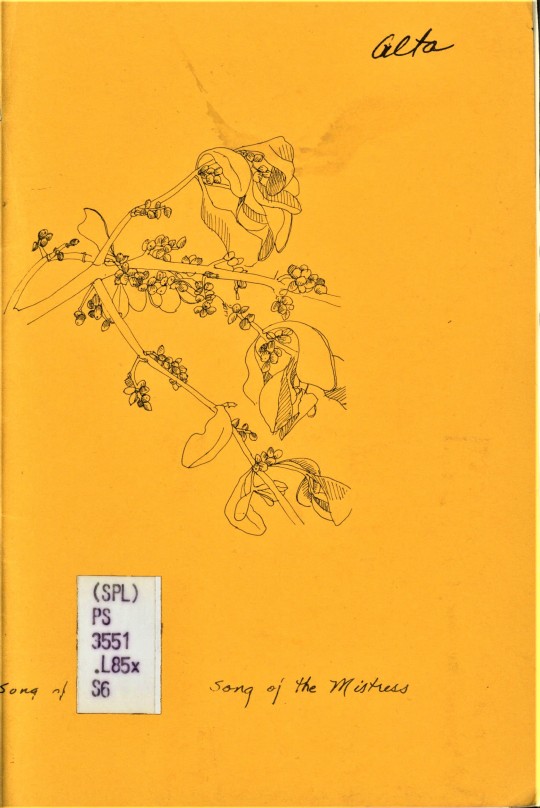
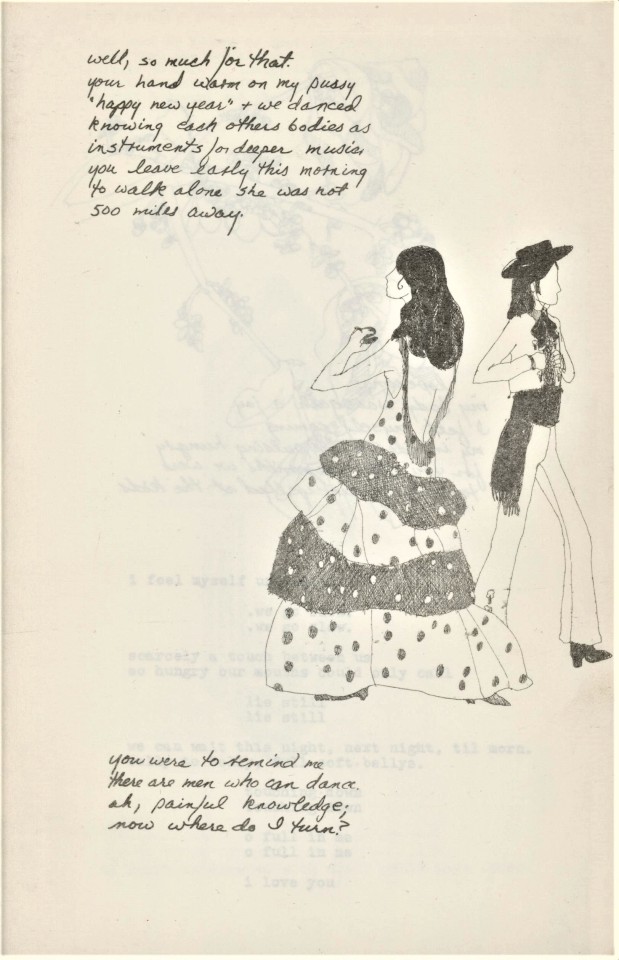
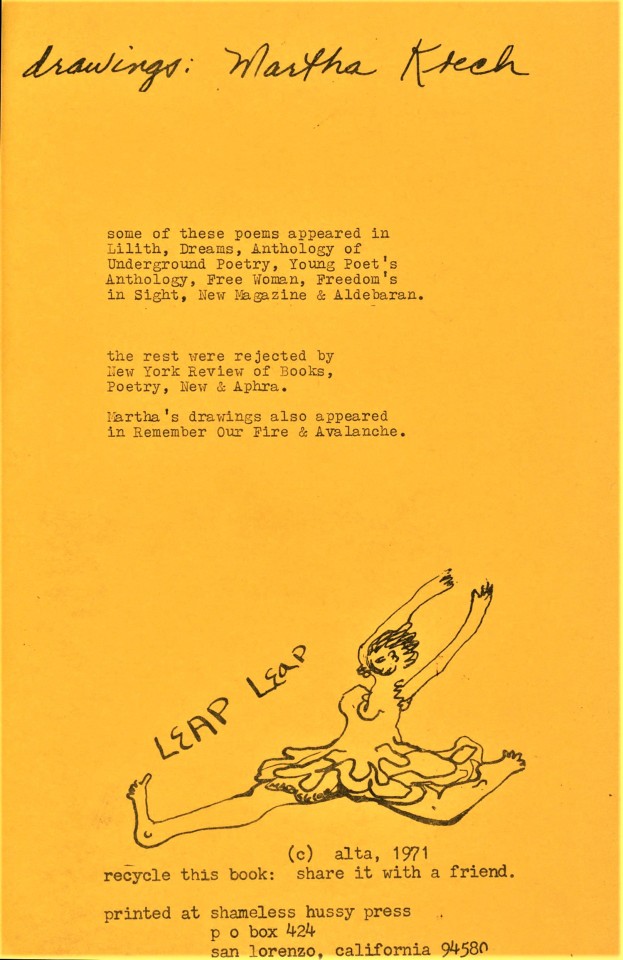
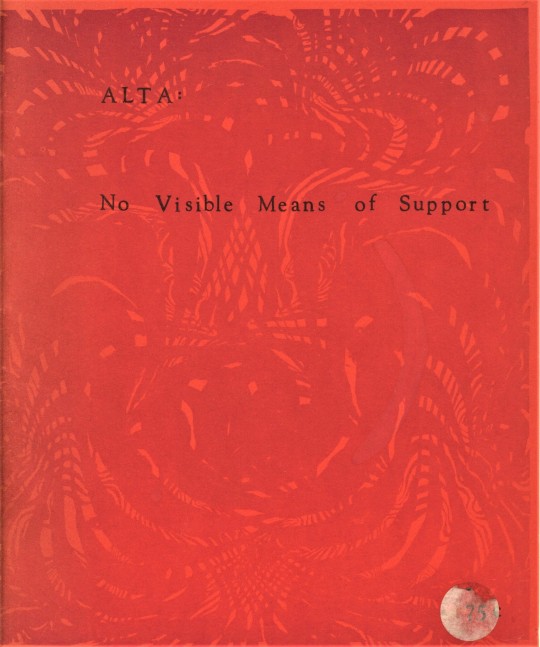
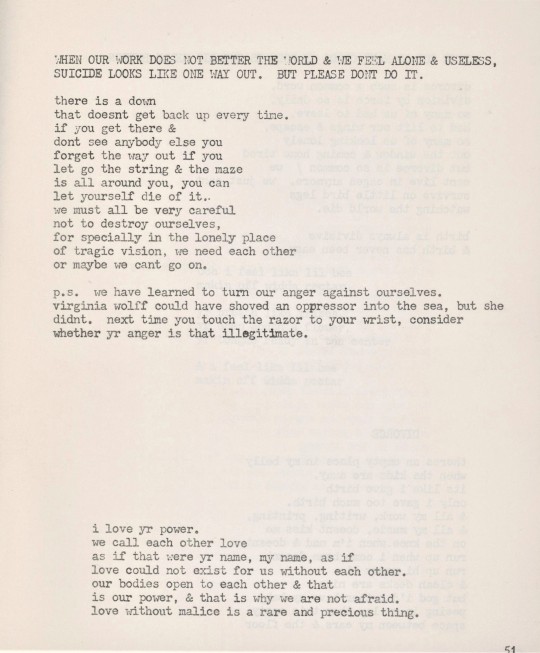
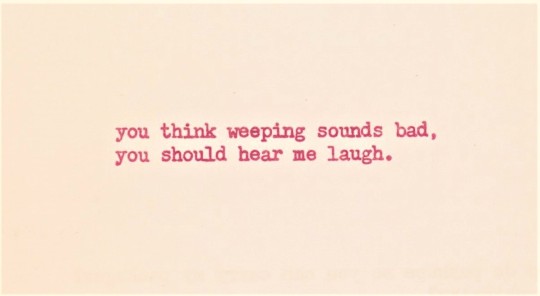
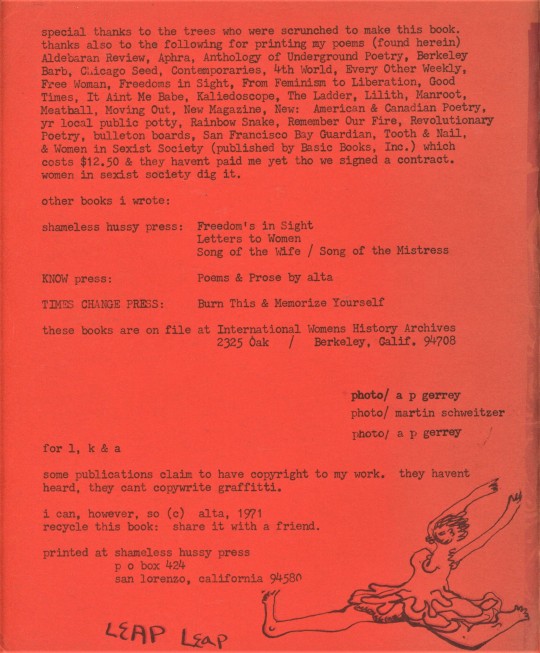
First Feminist Press!
Shameless Hussy Press
With the stress of Roe vs Wade potentially facing a repeal this summer, we want to let the women in our lives know they are not alone in their frustration. The fight women have been waging for their intellectual and bodily freedom has been a long one, so we wanted to revisit some history about the first women-owned feminist press in California, the Shameless Hussy Press! Poet and soon to be publisher Alta Gerrey founded the press in Oakland, California, in 1969, and would publish four women who later became prominent feminist writers: Pat Parker, Mitsuye Yamada, Ntozake Shange, and Susan Griffin. Alta published her own titles under her Shameless Hussy Press imprint, including three poetry collections preserved in our collection: Letters to Women, published around 1970; Song of the Wife; Song of the Mistress, published in 1971; No Visible Means of Support, published in 1971.
Alta’s sarcastic and straightforward writing style is reflected in the Shameless Hussy Press aesthetic. In her first collection, Letters to Women, she includes the iconic feminist symbol of a fist within the symbol of Venus and her copyright statement reads:
for underground reproduction without profit, there is no copyright. for moneymakers, this is copyright, and you gotta pay.
Alta emphasizes the aid of her friends and family in producing her book, and poetry aimed at letting women know that they were not alone in whatever injustices and hardships they faced, whether gender inequality and sexism, marriage and divorce, rape, mental illness, or raising children.
Alta’s second collection, Song of the Wife; Song of the Mistress, with drawings by Martha Kuech, reflects the intimacy the poet felt with her readers and how she used poetry as the outlet for emotions that could be a burden too heavy to carry at times. Letters to Women is dedicated “to every woman who is as isolated as i,” but Song of the Wife; Song of the Mistress "isn’t dedicated to anybody. eat yr hearts out.” Alta had a love for improper grammar, punctuation, and unconventional spelling. The first half of this second book reproduces a handwritten cursive script, presumably Alta’s handwriting, and the second half switches back to typewriter print. This title and Alta’s third collection, No Visible Means of Support, were both published after the Shameless Hussy Press had moved down the Bay to San Lorenzo, California, from its original location in Berkeley. Alta made the choice to move her independent press after the sabotage of a friend’s press in the same area, as well as to protect her daughter and herself from death threats she received for her work in the lesbian, feminist, and activist communities.
Shameless Hussy Press was the first to publish Ntozake’s Shange’s poetic performance work, For Colored Girls Who Have Considered Suicide When the Rainbow Is Enuf, which was later adapted into an Obie award-winning Broadway theater production. In 1976, Shameless Hussy published Camp Notes and Other Poems by Mitsuye Yamada, revolving around her experiences in the internment camps and the pain she felt at being perceived as an outsider.
The formation of the Shameless Hussy Press by Alta and the Women’s Press Collective by Judy Grahn, with aid from Pat Parker (who I posted about earlier), was quite inspirational for second wave of feminism. The four women who brought the feminist and lesbian publishing community to the foreground in California, Alta, Susie Griffin, Judy Grahn, and Pat Parker, had all met originally as neighbors over tea, but decided it was time to take action in their communities. Alta said in an interview that the group would often argue over how political their writing should be, wondering whether they should, “stick to the personal. [but] Susie kept saying, ‘the personal is political.’”
Griffin’s works were said to have launched ecofeminism in the United States as she rose to become one of the most influential American feminist writers of the 20th century. Alta’s Shameless Hussy Press gave these influential women the opportunity to be published outside the patriarchy of mainstream publishing, allowing them to completely claim their work as their own. Shameless Hussy ran from 1969-1989, despite being a one-woman-publishing house, publishing over fifty titles in its 20-y3qr existence.
–Isabelle, Special Collections Undergraduate Writing Intern
#Shameless Hussy Press#Alta Gerrey#Alta#Letters to Women#Song of Wife ; Song of Mistress#No Visible Means of Support#Judy Grahn#Feminist Press#Lesbian Poetry#Women's Press Collective#Pat Parker#Susie Griffin#Ecofeminism#Martha Kuech#Ntozake Shange#For Colored Girls Who Have Considered Suicide When the Rainbow is Enuf#Mitsuye Yamada#Camp Notes and Other Poems#Second Wave Feminism#Isabelle
29 notes
·
View notes